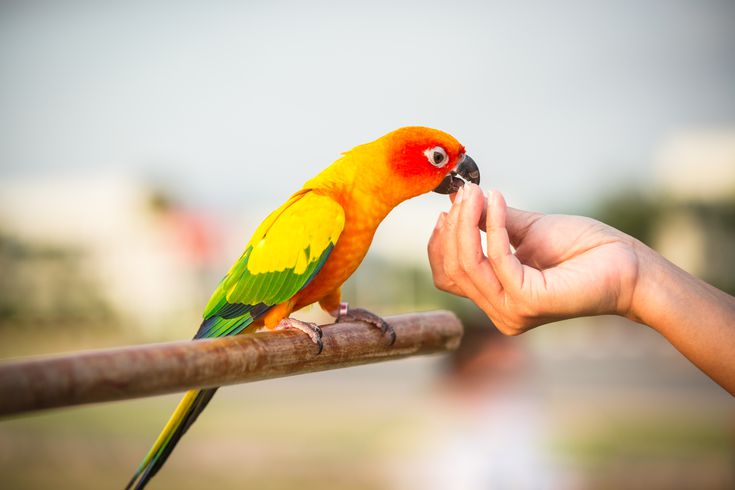An immunologist explains how avian flu could potentially jump to humans.
Emmanuel the emu has been sick with avian flu for the past few days. The deadly disease has reportedly wiped out 50 birds at Knuckle Bump farms, where he lives.
His claim to fame is showing up in TikToks with Taylor Blake, a farmer at Knuckle Bump—often, interrupting her as she explains things about other animals. Blake, who seems to share a close bond with Emmanuel, recently posted a video where she is seen cuddling the influenza-infected emu.
This affectionate act has sparked widespread anxiety among virologists. They have shared their concerns on Twitter, emphasizing the dangers of hugging a bird infected with a zoonotic virus like avian influenza—one that has a high potential to infect humans. Douglas Reed, an immunologist at the University of Pittsburgh tweeted: “Cuddling, kissing, or touching an infected animal that has got avian influenza is horrifying at so many levels.”
Reed’s lab studies respiratory viruses like avian influenza and SARS CoV-2 using monkey models. I reached out to him to get more of his thoughts about the risks of interacting with birds affected with avian influenza—for Blake, and for the rest of us. Our interview has been condensed and lightly edited for clarity.
Niranjana Rajalakshmi: What was your immediate reaction when you saw this farmer hugging the avian influenza-infected emu?
Douglas Reed: There are two competing thoughts there. There’s that personal aspect, having owned pets over my lifespan. And knowing farmers—I’m originally from Oklahoma—I can understand what it feels like to lose a beloved animal to a fatal disease. It’s akin to losing a family member. And so you hate that.
But at the same time, there’s the other part of me that’s spent the last 22 years working with high hazard pathogens. And with this particular pathogen, we spent the last several years in trying to understand how it causes disease, and how vaccinations or therapeutics might prevent or treat this disease. And it is an incredibly lethal pathogen in humans. You’d want to be wearing all kinds of protective equipment while handling that animal, and to protect yourself and to protect your family and those around you.
How likely it is that the virus would jump from birds to humans? Can it spread between humans?
There’s been only a few sporadic human cases of avian influenza over the last 25 years. The year 1997 was when the first avian flu outbreak happened in Hong Kong. Since then, there’s only been a few hundred cases, maybe six or 700 cases worldwide, that we know of. All of those happened from direct contact with infected animals.
There’s very limited human to human transmission with this virus. But the biggest concern is that this virus could get into humans and recombine or reassort with a human flu virus and acquire that readily transmissible nature that those viruses have. For our immune systems this would be a new virus, and so then it could spread quite readily, and our immune system might not be able to control it. Also, pigs could be a mixing vessel for flu. So pig could be infected with avian flu virus and those could get recombined there.
What would be the best way to deal such birds when you come to know they are infected with avian flu?
I don’t do poultry work, and I’ve never been affiliated with the USDA. But I can tell you my understanding. In these farms, when there’s a bird that’s detected to be positive for an avian influenza strain that’s highly pathogenic, the entire flock is culled or euthanized. Because the concern is that if it were to be transmitted to the rest of that flock, and if the flock got more to be, around wild bird species, they could spread it to another farm and another farm and another. And that’s actually what’s been happening. This ongoing outbreak that we’ve had in the United States is continuing to spread thanks to the wild birds that are spreading it from farm to farm.
Say the worst happens, and avian influenza did somehow start spreading around from person to person. Do we have vaccines that could prevent avian influenza in humans?
There’s a vaccine that’s in the national stockpile. I don’t think it’s actually been tested in an animal model [against the avian flu in particular]. With flu vaccines, there is such a long history of using them. And the mechanisms of protection are pretty well established. And so, avian influenza vaccines in the stockpile were made the same way as seasonal flu vaccines are made. And the assumption is that the protection would be the same, and it would work. That, but like I said, it’s never been, to my knowledge empirically tested.
During an avian influenza outbreak like this, what would be your take on consuming bird meat and eggs? Do we need to take precautions?
No. Particularly in the United States and in Europe, they screen these animals pretty aggressively. So, there shouldn’t be any concerns about chicken meat, or turkeys, or anything that you buy at the grocery store. Or even eggs. I’m still eating chicken, I still eat turkey, I still eat eggs. I haven’t changed these practices at all with this outbreak, because like I said, I trust that the inspections and the screening is occurring. Even if you were to eat an infected piece of chicken meat, most likely you’d cook it, and you wouldn’t eat it raw. Cooking should kill the virus.















